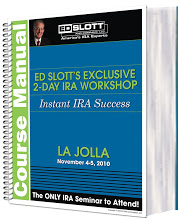Many people believe the use of joint accounts is a good way to avoid probate and transfer money to loved ones, and such accounts are sometimes referred to as “the common person’s estate plan.” But while joint accounts can be useful in certain circumstances, they can have dire consequences if not used properly.
Adding a loved one to your bank account can expose your account to the loved one’s creditors. A joint ownership account could be vulnerable to creditors of all the account owners. For example, if you add your daughter to your bank account and she falls behind on credit card payments and is sued, the credit card company can use all the money in the joint account to pay off your daughter’s debt.
In addition it could adversely effect eligibility for Medicaid, although that will vary by state law. Another problem arises if a joint owner is removed from a bank account. It could in certain circumstances be considered an improper transfer of assets when one owner enters a nursing home. For estate planning purposes you might want to have assets registered in individual names rather than in joint name.
Also, you need to be sure you can trust the joint account holder because he or she will have full access to the account. Either person can take money out of the account at any time, regardless of who contributed to it. If you are seeking to transfer assets and avoid probate, placing the account under the control of a trust may make much more sense.
All of the above does not apply to IRAs. Keep in mind that an IRA cannot be registered in joint name, transferred or assigned while the account owner is alive. The “I” in IRA stands for “Individual.” This also means that you cannot transfer ownership of your IRA to your trust during your lifetime. Any of these actions will create a taxable distribution to the IRA owner who will no longer have an IRA. In addition, the IRA passes by beneficiary form at the death of the account owner; so as long as you have a beneficiary form on file with the IRA custodian, your IRA will automatically bypass probate.
By IRA Technical Consultant Marvin Rotenberg and Jared Trexler
------------------------------------------------------------------------------
Comment, Question, Discussion Topic on your mind? Click on the Blue Comment Link below and leave your thoughts then check back to see what other consumers and advisors think.
*Copyright 2010 Ed Slott and Company, LLC
Tuesday, November 2, 2010
The Dangers of Joint Accounts
Subscribe to:
Post Comments (Atom)














0 comments:
Post a Comment